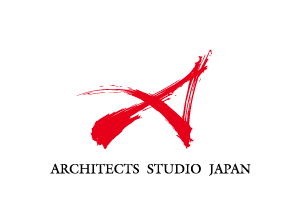oDOMOs
Sponsors for oDOMOs
Online DOCOMOMO School Tokyo 2020+1
Resilient Inheritance: Learning from Daikan-yama Hillside Terrace by Fumihiko Maki.
We DOCOMOMO International have decided to have Online School instead of in-person workshop considering an influence of COVID-19.
Dear applicants who have not registered, please immediately check inbox of your email account and contact info@docomomo2020.comto let us know whether you will register or withdraw. Tell us also if you find no email from us, we might have wrong email address of you.
SUMMARY
In 2021, the DOCOMOMO Online School will be focusing on in-depth research on urban modern heritage and its relation to Japanese culture. People have lived and will continue to live in modern neighbourhoods and sites that represent 20th century urban heritage. Daikan-yama Hillside Terrace in Tokyo, is such an example of a modern architecture and urban masterpiece, designed between 1969 and 1992 by Pritzker Prize winner Fumihiko Maki (1928). Through studying this masterpiece, we will learn that modern architectural heritage is not just a symbol or an object frozen in time but a collective form still active, that must be woven into history and context to ensure its future.
Faced with the COVID19 pandemic challenges, in 2020 the DOCOMOMO Student Workshop had to be postponed and has now been transformed into the Online DOCOMOMO School. It will offer an intensive 10-day online program that will be organised around teams of international tutors and students. Students in Tokyo serving as physical sensors will identify connections to the context and the urban fabric that will enable the International Students to weave them into their designs. It will lead students to explore and experience together the meaning and significance of conservation and preservation of 20th century cultural heritage.
Fumihiko Maki, who was a member of the seminal post-war architecture movement Metabolism, will play a prominent role in the Online DOCOMOMO School Tokyo 2020+1. Maki will provide theoretical content, while his office will make available the background information necessary to understand the Daikan-yama Hillside Terrace site that adjoins the historic Asakura House of 1919.
FULL CONTENT
Tokyo is a large, modern and futuristic city. Yet, it simultaneously has a long and important history. After the middle of the 20th Century, some architects and critics predicted that “modern architecture is likely to lose the regional or historical character”. Nevertheless, it has gained an international character that makes it necessary for us consider it as a common heritage.
Today, we must provide an answer to the challenging question of how we can preserve such a heritage and develop our environment, while architects continue to evolve the theory of the Modern Movement.
We believe that exploring the case of Daikan-yama Hillside Terrace will inspire us all. This famous ensemble of buildings and urban landscape, located in the mega-city Tokyo, has successfully connected to the historical and regional context through the vocabulary of modern architecture.
Fumihiko Maki was responsible for the design of Daikan-yama Hillside Terrace, which was built in phases between 1969 and 1992. In his design of the project, Maki considered the surrounding environment and the historical and geographical context. The site is located within the central core of the mega-city that is well known for its concentrated cultural venues and activities, while its historical context, the character and surrounding buildings are well-preserved.
In his essay published in JA Magazine (1994), Maki shares his thoughts about context. In this text he explains his ideas about the relationship between the mega-city and the preserved environment, which reveals the unique Sequence and Linkage in Hillside Terrace and the neighborhood in Daikan-yama.
The goal of this school is to understand the significance of ideas and realizations of modern architecture as a very important asset that deserves to be preserved for our contemporary society and the environment. The student will discover new ideas and research methodologies through participation in our online school. With this unique experience the student will acquire valuable tools and approaches to develop new ideas that will be of use in future career endeavors.
The student will learn about Maki who, in the past fifty years, has nurtured Daikan-yama Hillside Terrace through the process of design, and how one can also “nurture” projects with skills and knowledge to create narratives of history and the future.
What about Asakura House that is, in its own way, a 20th century architecture as well?
This is an online-workshop for succeeding and proceeding URBAN HERITAGE. People lived, live and will live in the living heritage. It is not a symbol or memorial but something active that is to be weaved with contexts of history for future. Students in Tokyo as physical sensors will find and show strings of the context and International Online Teams will weave with them.
It will lead students to seek meanings of conservation/preservation of cultural heritage.
WHAT IS COLLECTIVE FORM ?
Learning from Daikan-yama Hillside Terrace For Resilient Inheritance
The goal of the School is to understand the significance of ideas in modern movement for our contemporary society and the environment. You will discover new ideas and methodologies through participation in our School. With this unique experience, participants will take home valuable tools and approaches to help develop new ideas for your future career.
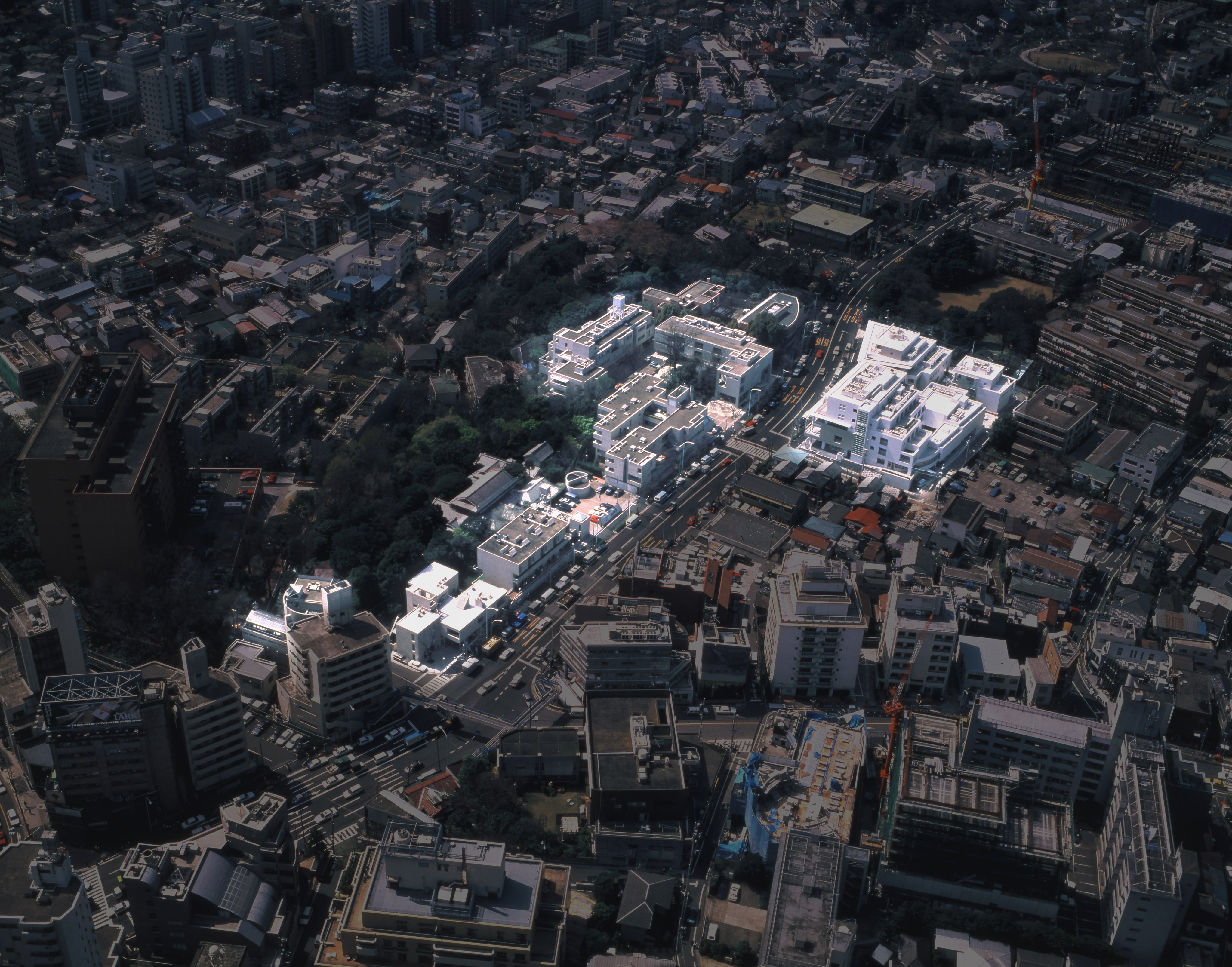
* The term "Group Form" was previously used in this website, but we use the term "Collective Form" from now on for consistency with Fumihiko Maki's own thesis. Fumihiko Maki himself sometimes used the term "Group Form" but his original thesis was written as "Collective Form."
TOKYO ~ MODERN AND HISTORIC
Tokyo is a large, modern and futuristic city. It is also very historic. After the middle of 20th Century, some architects and critics predicted that “modern architecture is likely to lose the regional or historical character.” “Daikan-yama Hillside Terrace”, in the mega-city Tokyo, has successfully connected to the historical and regional context through the vocabulary of modern architecture. Today, we must answer to the challenging question of how we can preserve and develop our environment while the architects continue to evolve the modernist theory. We believe that this School, in the context of Daikan-yama Hillside Terrace, will inspire us all.
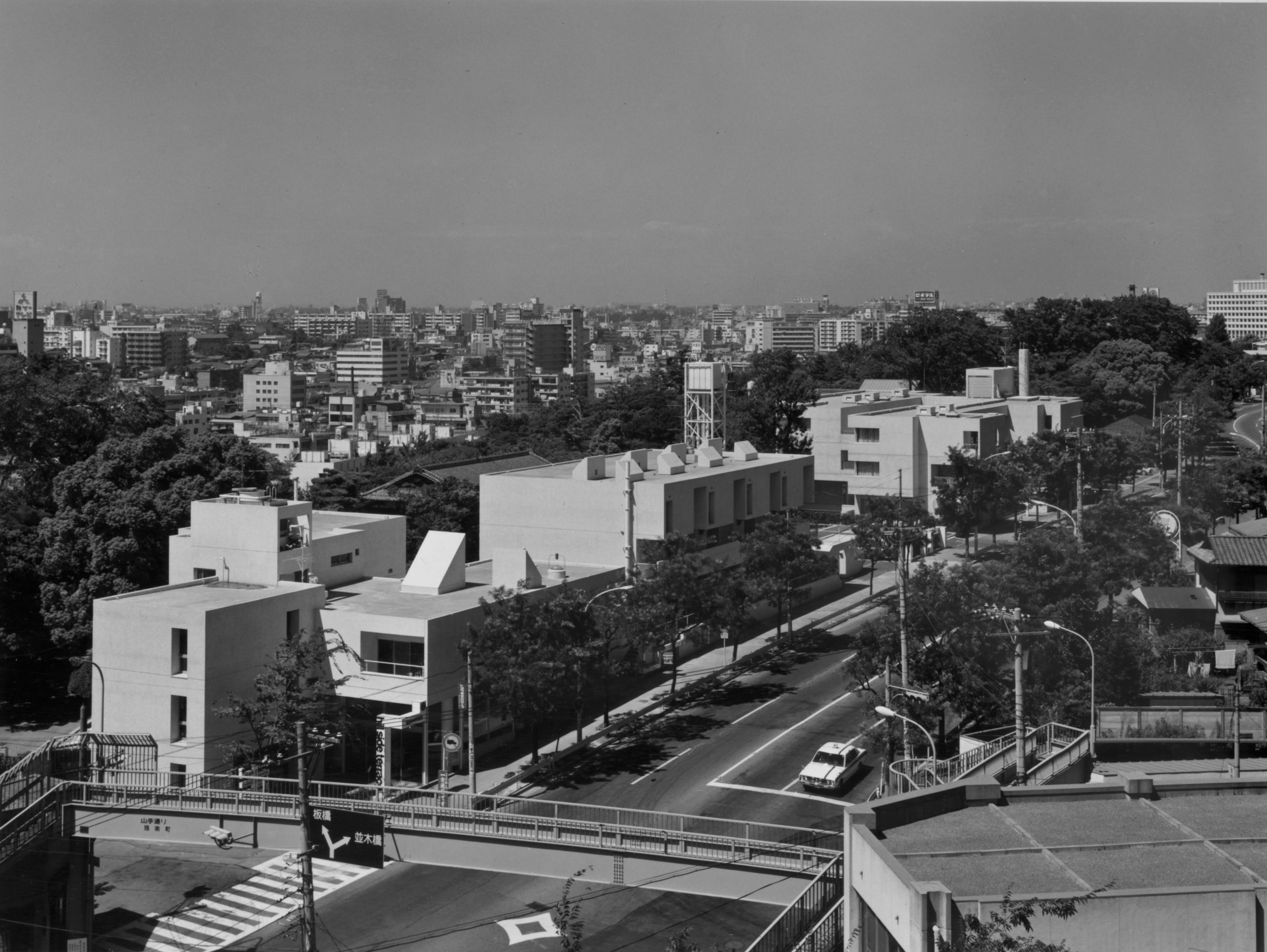
DAIKAN-YAMA HILLSIDE TERRACE AND FUMIHIKO MAKI
Fumihiko Maki, one of the world’s leading contemporary architects and the Pritzker Award winner, was responsible for the design of Daikan-yama Hillside Terrace, built in phases between 1969 and 1992. In the project, Maki considered the surrounding environment as the context of history and geographical region.
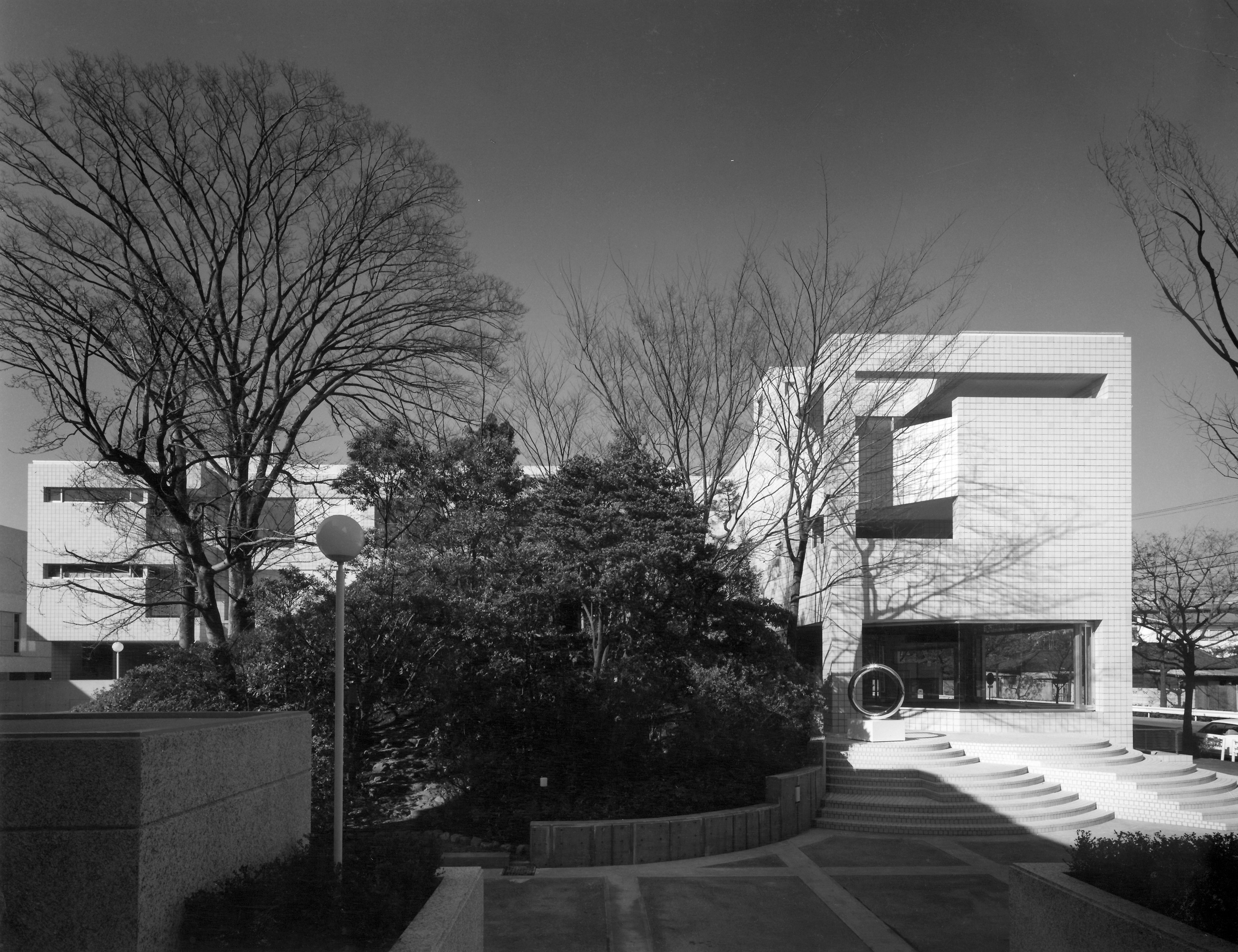
Mr. Maki will give a lecture at the beginning of the school and his office will lend support in your understanding of the project. Isn’t this an amazing opportunity!?
The following text is compiled for your initial understanding of the context and the thoughts of Mr. Maki. The Italics are his words from his essay on JA Magazine 16 1994.
Hillside Terrace Complex I-Ⅵ Outline (MAKI AND ASSOCIATE WEB Site)
WHAT IS COLLECTIVE FORM ANYWAY?
You will understand three major approaches for Collective Form.
- 1: Compositional Form
- 2: Mega-Structure (Form)
- 3: Collective Form
Maki explained his theory about Collective Form. with showing traditional villages. Learn it with documents we DOCOMOMO will provide for the school.

Source: Fumihiko Maki, “ChapterⅠ Collective Form-Three Paradigm,” JA, 1994 April, pp259
YOU WILL EXPERIENCE AND FIND….
You will experience the architecture and the environment, which you can, only through being in the place. You will find what Maki, in the past fifty years, has nurtured” Daikan-yama Hillside Terrace through the process of design, and how you also can “nurture” your projects with skills and knowledge to create the history and the future.
Daikan-yama is situated within the central core of a mega-city Tokyo and is well known for its concentrated cultural venues and activities, while historical context, nature and buildings are well-preserved.
You’ll find the relationship between mega-city and the preserved environment which reveals unique Sequence and Linkage in Hillside Terrace and the neighborhood in Daikan-yama. Maki mentions that this research is aimed at accomplishing the Unity of Experience.
Maki describes five Operational Categories for the sequence and linkage.
- 1: To Mediate
- 2: To Define
- 3: To Repeat
- 4: To Make A Sequential Path
- 5: To Select
As an example, “Former Asakura Residence”, built over a hundred years ago, should be comprehended as a linkage to history. Around this linkage, you will find and record something to “mediate”, “define”, “repeat”, “make a sequential path”, or “select.”
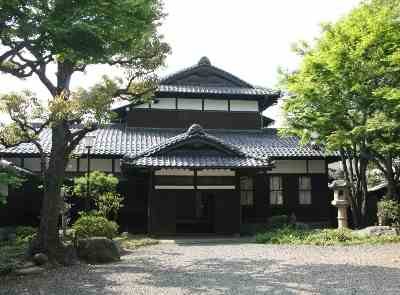
1. Schedule : 26 July to 4 August, 2021
10 DAYS SCHOOL ~FOR ONLINE CONTEXTUALISM
| Day1 | 26 Mon. July | “Communication Designs Architecture” |
| Day2 | 27 Tue. July | “How To Design Memories”by film director Mr. Wim Wenders |
| Day3 | 28 Wed. July | “ FIND PROBLEM and Develop the Context for it!” |
| Day4 | 29 Thu. July | “Who Are You in the Context?” |
| Day5 | 30 Fri. July | MID-REVIEW |
| Day6 | 31 Sat. July | “Context in Architecture and the Information” |
| Day7 | 01 Sun. August | “What Architecture Brings To Us” |
| Day8 | 02 Mon. August | Work for presentation |
| Day9 | 03 Tue. August | Work for Presentation |
| Day10 | 04 Wed. August | FINAL REVIEW |
2. Time Zone
There are two time zones set for this workshop to accommodate
Times for students world wide.
TIME FOR TEAM DISCUSSION WITH TUTORS
Please find out your correct time of your area based on JST
(Japan Standard Time)
There are some convenient sites for time difference conversion.
AE Team; Asia, Europe, Africa team:
| 16:00~19:00 | JST Tokyo Time |
AA Team; Asia, America team:
| 9:00~12:00 | JST Tokyo Time |
3. Preliminary Work
3-A PDS; Preliminary Data-Sessions by Students in Japan with Sponsored Budget
We have CAD data of Daikan-yama Hillside Terrace and it will be transferred into 3D Digital.
A surveying company will provide us 3D measured data of Former Asakura Residence and it will be also transferred into 3D Digital data.
The Data-Sessions will arrange these data for foreign students to have virtual/immersive experience in and around Daikan-yama.
3-B PSS; PRELIMINARY STUDY-SESSIONS by Students in Japan
Study-sessions for 3 days or 3 weekends in advance for SSOC.
Japanese or exchanging students living around Tokyo meet to find something to tell CONTEXTS for foreign students in SSOC, which would be words, pictures, film, website, nature…and place.
SESSION 1. FIND WORDS; Brainstorming, Reading and finding the best English words to share common perceptions about history and modernism in Tokyo and Japan, and contexts in Daikan-yama
SESSION 2. FIND STORIES; Finding texts in theory or novel, images, films, manga-animation, music or any arts to convey the understanding of contexts in Tokyo and Japan for foreign students.
SESSION 3. FIND SPACES; Finding various spaces that seems important for the contexts and taking pictures to explain for foreign students.
4. oDOMOs
(All process of each team will be uploaded and shared daily on Facebook or Instagram)
THEME: Flâneur Weaving the Context
Research Goal:
Find a series of places that can be a walkway where flâneur would weave in history and might find some lack of linkage, including a space between Former Asakura Residence and Daikan-yama Hillside Terrace.
Design Goal:
Propose the new walkway where flâneur can weave history, present and future with enchanting linkages, including a new path between Former Asakura Residence and Daikn-yama Hillside Terrace.
Part1 Day1-5: Research Context From History
Part2 Day6-10: Design Context For Future
AWARD: Tokyo Gold Medal
The best project and the team will be selected by a special critic and awarded with €500 for each member.
Certificate
oDOMOs will issue a certificate for a student who completed this program by the name of DOCOMOMO International and universities in Japan. The student may ask school that he/she belongs to, to give him/her credits for the certificate according to the regulation of the school. The student need to confirm the regulation by himself/herself.
5. SPECIAL ASSIGNMENT
As Summer School of ONLINE CONTEXTUALISM, besides the presentation materials in final review, we will require you to upload another edition of your slide show movie on YouTube so that all architects over the world can receive the context for their future, not only for Daikan-yama, Tokyo.
Development of initial 3D data by PDS to your digital modeling is also very important for ONLINE REALITY.
6. Tutors and Students
Each Team will have 8-10 students including some Japanese or exchanging students living in Japan.
Each Team will have 3 tutors; Two in Tokyo and another international tutor join to a group.
7. Online Tool: Zoom
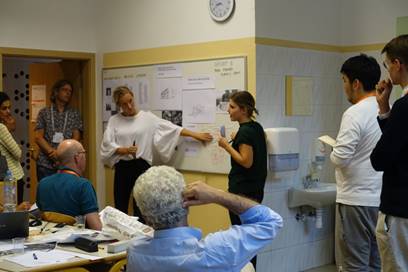
Note: The contents of the Workshop may be revised. This page will be updated accordingly.
Application Form:
Please fill in the following application form.
Selection/Acceptance:
Criteria for the selection of the participating members are based on the statement of purpose, motivation, experience and the skills of the applicants. Acceptance notice will be sent to you via email to your registered address.
Registration fee upon acceptance:
Early registration: €80.00*, Normal registration: €120.00*
Participation fees include the conference participation fees (August 29- September 2)
Participants in the workshop are expected to participate in DOCOMOMO International Conference.
SPECIAL REDUCTION:
You can ask for a special 50.00Euro reduction from the registration fee if you have a nationality or studentship in a country that has lower GDP per capita than the average of the world in 2019 by the World Bank data. To find out a country's GDP per capita, refer to https://en.wikipedia.org/wiki/List_of_countries_by_GDP_(nominal)_per_capita and see the World Bank data column. If your country is ranked between 64 and 189, you are eligible for the special reduction.
*Payment methods will be sent together with the acceptance notice.
Registration period:
Early registration: 1st March, 2021 –30th April, 2021 (JST)
Normal registration: 1st May, 2021 – 10th June, 2021 (JST)
Personal information provided on the application form will be used only for the school implementation and evaluation purposes. It will not be made public unless given consent by the applicant.
The copyright of the implementation program shall belong to DOCOMOMO Japan.
Committee members:
Andrea Canziani: Politecnico di Milano (Italy)
Wessel de Jonge: TU Delft (The Netherlands)
Gonçalo Moniz: University of Coimbra (Iberia)
Carolina Quiroga: University of Buenos Aires (Argentina)
Yasuko Kamei: Nihon University (Japan)
George Kunihiro: Kokushikan University (Japan)
Takayuki Suzuki: Wuhan University, China (Japan), Dean, oDOMOs
Yoshiyuki Yamana: Tokyo University of Science (Japan)
(alphabetical order)
Host:
General Incorporated Association DOCOMOMO Japan
Contact Information:
WS@docomomo2020.com


